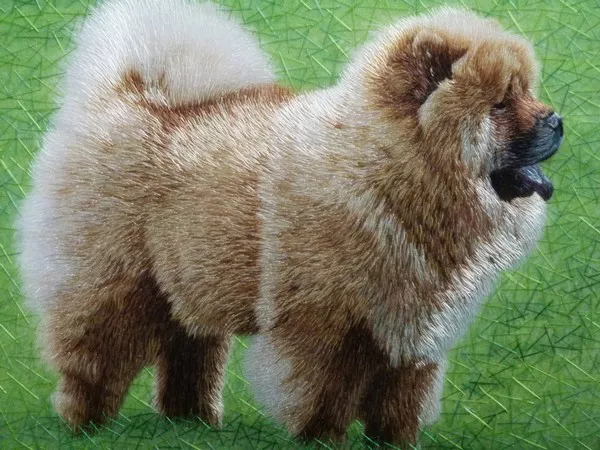Chow Chows, with their distinctive lion-like mane and regal appearance, have captured the fascination of many dog enthusiasts. However, these dogs have also garnered a reputation that is far from universally positive. Often characterized as aloof, aggressive, and difficult to handle, Chow Chows have, unfortunately, become synonymous with a certain level of caution and apprehension. In this article, we delve into the historical, cultural, and behavioral factors that have contributed to the Chow Chow‘s less-than-favorable reputation.
The Historical Context
To truly understand the origins of the Chow Chow’s reputation, it’s essential to delve into the breed’s history. Believed to have originated in China thousands of years ago, Chow Chows were originally bred for a variety of purposes, including hunting, guarding, and pulling carts. Their versatile nature meant they had to be capable of adapting to different roles and situations, which often required a certain degree of independence and assertiveness.
In ancient China, Chow Chows were revered for their loyalty and protective instincts. They were considered prized possessions, often kept within the confines of the imperial palace. However, this very loyalty and protectiveness also led to their perceived aggression, as they were fiercely protective of their territory and family.
Cultural Symbolism
The cultural significance of the Chow Chow further complicates its reputation. In China, the breed has been associated with various meanings, including luck, protection, and even mysticism. The distinctive blue-black tongue and lion-like appearance added an aura of uniqueness and mystery to these dogs. This symbolism, while intriguing, has also perpetuated misconceptions and contributed to the breed’s sometimes misunderstood temperament.
Behavioral Traits and Temperament
Chow Chows possess unique behavioral traits that have contributed to their reputation. One prominent feature is their aloof nature. Unlike some other dog breeds that readily seek out human interaction, Chow Chows can be more reserved and independent. This aloofness can sometimes be misinterpreted as unfriendliness or aggression, leading to apprehension among those unfamiliar with the breed.
Additionally, the breed’s protective instincts can manifest as aggression if not properly managed. Chow Chows have a strong territorial nature, which, coupled with their loyalty, can lead them to be suspicious of strangers or exhibit guarding behaviors. Without adequate training and socialization, this can indeed result in aggressive tendencies.
The Role of Socialization and Training
Proper socialization and training play a crucial role in shaping any dog’s behavior, and Chow Chows are no exception. However, due to their unique temperament, they require consistent and early socialization to ensure they are comfortable and well-adjusted in different situations. Unfortunately, inadequate socialization and training can lead to behavioral issues that contribute to the breed’s bad reputation.
Media Influence and Public Perception
The media has played a significant role in perpetuating the Chow Chow’s negative reputation. Stories of aggressive or dangerous dogs often make headlines, and when a Chow Chow is involved, it reinforces existing biases. While it’s important to acknowledge that any breed can display aggressive behavior under certain circumstances, media sensationalism can contribute to a skewed perception of Chow Chows as inherently aggressive dogs.
Breed-Specific Legislation
In some regions, breed-specific legislation (BSL) has been implemented in response to dog attacks or incidents involving specific breeds, including Chow Chows. BSL often involves restrictions or bans on owning certain breeds deemed dangerous. While the intention behind such legislation is to promote public safety, it can further stigmatize and negatively impact the reputation of breeds like the Chow Chow.
Dispelling the Myths
It’s important to note that the negative reputation surrounding Chow Chows is not entirely warranted. Like any breed, individual temperament varies widely based on factors such as genetics, upbringing, and training. While they may have certain behavioral tendencies, it’s unfair to label all Chow Chows as aggressive or dangerous.
Chow Chows can indeed be wonderful companions when raised and trained appropriately. Their loyalty, intelligence, and unique personality traits make them a rewarding breed for experienced dog owners who are willing to invest time and effort in their care.
Conclusion
In conclusion, the bad reputation of Chow Chows is a complex issue rooted in historical context, cultural symbolism, behavioral traits, media influence, and public perception. While there are certain characteristics that can contribute to their perceived aggression, it’s essential to approach this breed with an open mind and a willingness to understand their unique needs. Responsible ownership, proper training, and early socialization are key factors in shaping the behavior of any dog, including Chow Chows. By dispelling myths and addressing misconceptions, we can hope to promote a more balanced and accurate understanding of this intriguing and regal breed.


